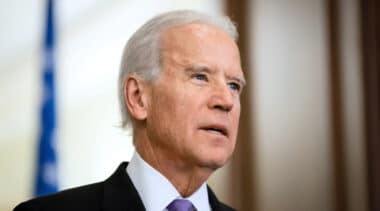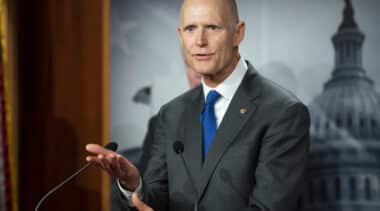Jacob James Rich is a policy analyst at Reason Foundation.
His work primarily focuses on health care policy, specializing in prescription and illegal drug regulations.
Rich holds master’s degrees in mathematics and economics from Eastern Michigan University. He is currently a Ph.D. student at the Case Western Reserve School of Medicine.
Prior to joining Reason, he conducted research for the Cato Institute focused on economics and opioid policy.
-
Massachusetts bills would raise taxes on nicotine products
Massachusetts must carefully consider how increasing taxes on certain products could influence consumer behavior.
-
An evolving legal landscape for marijuana and firearms
Two recent federal court decisions signal a fundamental shift in how courts evaluate federal restrictions on firearm ownership by marijuana users.
-
The AMA’s misleading narrative on vaping harms public health
The debate over vaping and e-cigarettes remains mired in fearmongering, and the American Medical Association is a key contributor to the problem.
-
Trump’s proposed price controls on Medicare and Medicaid could reduce government spending
The executive order seeks to reintroduce the most favored nations reimbursement model, which was originally formalized during Trump’s first administration.
-
The truth about marijuana, mental illness, and violence: A review of Alex Berenson’s claims in ‘Tell Your Children’
Marijuana legalization appears to reduce the prevalence of violent crime and suicide.
-
In Florida, drug deaths rose under former Attorney General Pam Bondi
During Bondi's time as the state's attorney general, drug overdose deaths in Florida nearly doubled.
-
Legalizing sports betting is the right call
Since the Supreme Court’s 2018 decision on sports betting, online sports gambling has been legalized in 30 states and Washington, DC.
-
The future of ‘Chenery II’
The implications of 'FDA v. Wages and White Lion Investments, L.L.C.' could be much larger than the future of the e-cigarette industry.
-
How America subsidizes medicine across the world
The U.S. healthcare market subsidizes much of the world’s cutting-edge medical innovations, including pharmaceutical developments.
-
A Schedule III designation is still overly restrictive for marijuana
A Schedule III designation fails to fully align federal and state law in the states that authorize some form of commercial market in marijuana.
-
Marijuana legalization is not associated with increases in youth suicide rates
Youth suicide rates actually tend to drop following legal access to recreational and medical marijuana.
-
Biden administration should reject the proposed menthol ban
President Biden should take a careful look at data that suggests such a prohibition would not make a substantial impact on youth smoking rates or public health.
-
Study: Menthol cigarettes do not increase youth smoking more than other cigarettes
This study concludes that menthol cigarette availability does not pose a greater threat to public health than regular cigarette availability.
-
Drug Legalization Handbook
"America needs to recognize that we will not see a reduction in violent crimes until we legalize drugs. All drugs."
-
New York’s legislature should stand firm against Gov. Hochul’s tobacco prohibition
A similar flavored tobacco ban in Massachusetts has been an epic failure.
-
Florida politicians want fentanyl designated a weapon of mass destruction
Then fentanyl crisis will not be resolved by doubling down on prohibition policies that have failed for decades and are actually fueling overdose deaths.
-
Massachusetts menthol ban increased smoking among black women, research finds
It seems clear that menthol prohibitions are ineffective mechanisms for improving public health in the black community.
-
The effect of menthol bans on cigarette sales: Evidence from Massachusetts
Massachusetts' flavored tobacco ban primarily sent buyers to other states and illicit markets.


















